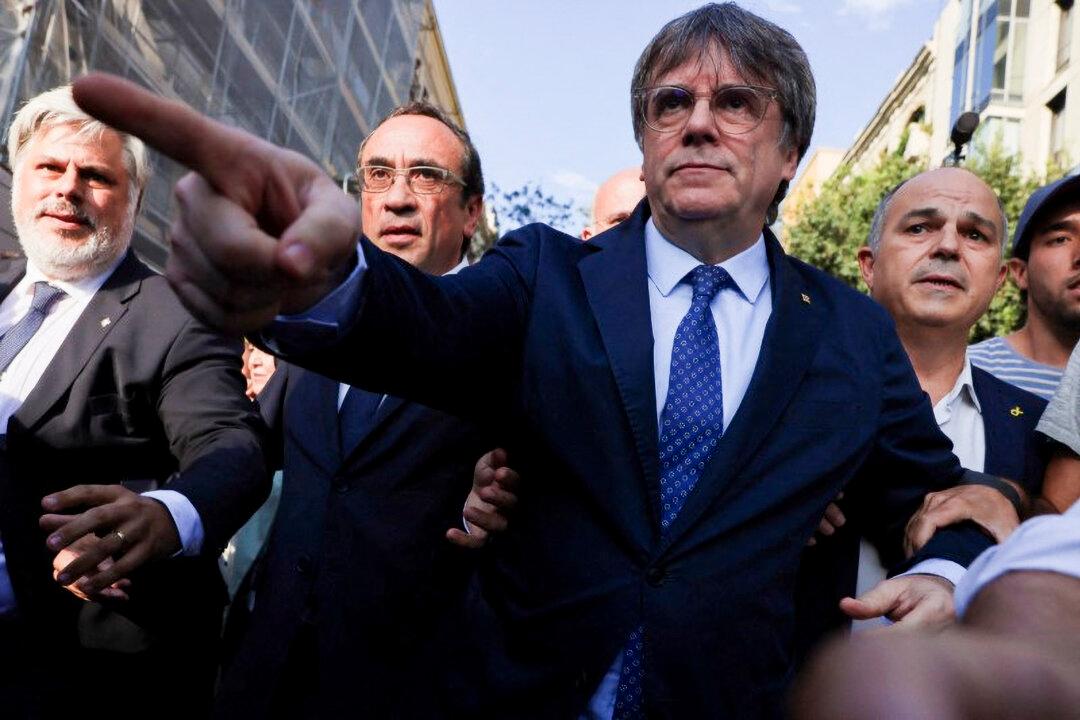Catalonian separatist leader Carles Puigdemont evaded Spanish police after speaking at a rally in Barcelona amid a pending warrant for his arrest and was bound for Belgium on Aug. 9.
Jordi Turull, general secretary of the pro-Catalan independence party Junts per Catalunya (Junts), which means “Together for Catalonia,” told RAC1 radio that he didn’t know whether Puigdemont had yet reached Waterloo, where he has lived in self-imposed exile since leading a failed bid for the region’s secession in 2017.





